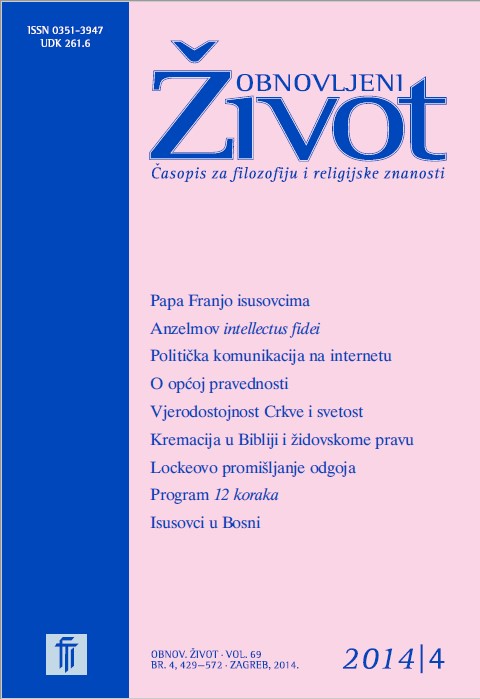Anselm’s »Intellectus Fidei« with a Review of »Cur Deus homo«
Keywords:
Anselm of Canterbury, atonement, salvation, Cur Deus homo, faith, reasonAbstract
The article ponders the »intellectus fidei« method of theological reflection developed by Anselm of Canterbury which we shall present as being dialectic–rational. Unlike patristic theology, wherein the »quaerere« method predominates — the search for God, for the face of God — Anselm utilizes mostly the »accedere« method, clarity of the mind expressed in »rationes necessariae«. Though Anselm is not a rationalistic theologian, of which he is frequently accused, the article points out the problematicity of his dialectic–rational »quaerere« method. This is particularly evident in his work »Cur Deus homo« which is discussed in the second section. The basic aspects of this work are portrayed with a special emphasis on Anselm’s angelology which represents the hidden core of the complete argumentation on atonement. This work also is assessed in a positive way, but not without indicating the limitations of Anselm’s dialectic–rational method therein.
Downloads
Published
Issue
Section
License
Jednom prihvaćeni članak obvezuje autora da ga ne smije objaviti drugdje bez dozvole uredništva, a i tada samo uz bilješku da je objavljen prvi put u Obnovljenom životu. Uredništvo će obavijestiti autora o prihvaćanju ili neprihvaćanju članka za objavljivanje.
Članci objavljeni u časopisu se, uz prikladno navođenje izvora, smiju besplatno koristiti u obrazovne i druge nekomercijalne svrhe.


